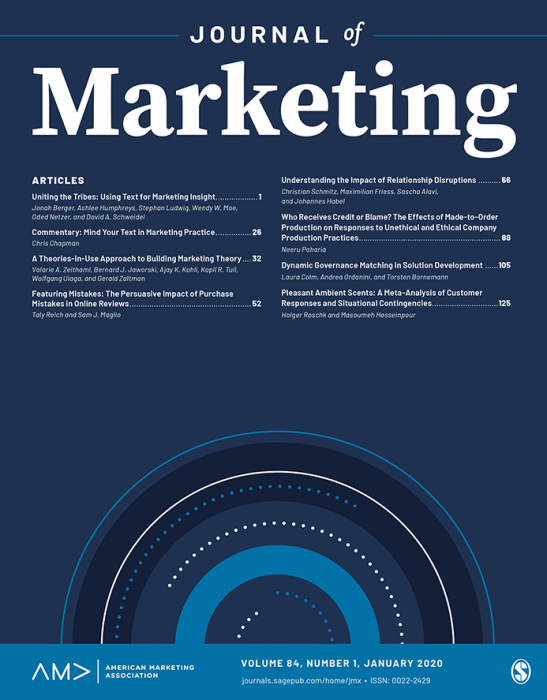EXPRESS: How High Arousal Language Shapes Micro versus Macro Influencers’ Impact
IF 10.4
1区 管理学
Q1 BUSINESS
引用次数: 0
Abstract
Influencer marketing is a popular strategy to connect with consumers. However, influencers’ use of overly high arousal language in promoting products (e.g., “it’s totally AMAZING!”) has raised questions about their true motivations. This article investigates how high arousal language in micro versus macro influencers’ sponsored posts might shape engagement. Six studies, combining automated text, image, video, and audio analyses of thousands of Instagram and TikTok posts with preregistered controlled experiments, demonstrate that high arousal language increases engagement with micro influencers, but it decreases engagement with macro influencers, seemingly because it makes micro (macro) influencers appear more (less) trustworthy. Yet the negative effect of arousal for macro influencers can be mitigated if their posts provide counterbalanced valence (e.g., both positive and negative assessments) or if they indicate an informative, rather than commercial, goal. These findings deepen understanding of how language arousal shapes consumer responses, reveal a psychological mechanism through which language arousal affects perceptions, and provide actionable insights for crafting more effective social media content.EXPRESS:高唤醒语言如何塑造微观与宏观影响者的影响
网红营销是一种与消费者建立联系的流行策略。然而,网红们在推广产品时使用了过度亢奋的语言(例如,“这太棒了!”),这让人们对他们的真实动机产生了疑问。本文研究了微博和宏观网红赞助帖子中的高唤醒性语言如何影响用户粘性。六项研究将对数千条Instagram和TikTok帖子的自动文本、图像、视频和音频分析与预先注册的对照实验相结合,表明高唤醒性语言增加了与微观影响者的互动,但却降低了与宏观影响者的互动,似乎是因为它使微观(宏观)影响者显得更(不)值得信赖。然而,如果他们的帖子提供了平衡的价值(例如,积极和消极的评估),或者如果他们表明了一个信息目标,而不是商业目标,则可以减轻对宏观影响者的负面影响。这些发现加深了对语言唤起如何影响消费者反应的理解,揭示了语言唤起影响感知的心理机制,并为制作更有效的社交媒体内容提供了可操作的见解。
本文章由计算机程序翻译,如有差异,请以英文原文为准。
求助全文
约1分钟内获得全文
求助全文
来源期刊

Journal of Marketing
BUSINESS-
CiteScore
24.10
自引率
5.40%
发文量
49
期刊介绍:
Founded in 1936,the Journal of Marketing (JM) serves as a premier outlet for substantive research in marketing. JM is dedicated to developing and disseminating knowledge about real-world marketing questions, catering to scholars, educators, managers, policy makers, consumers, and other global societal stakeholders. Over the years,JM has played a crucial role in shaping the content and boundaries of the marketing discipline.
 求助内容:
求助内容: 应助结果提醒方式:
应助结果提醒方式:


